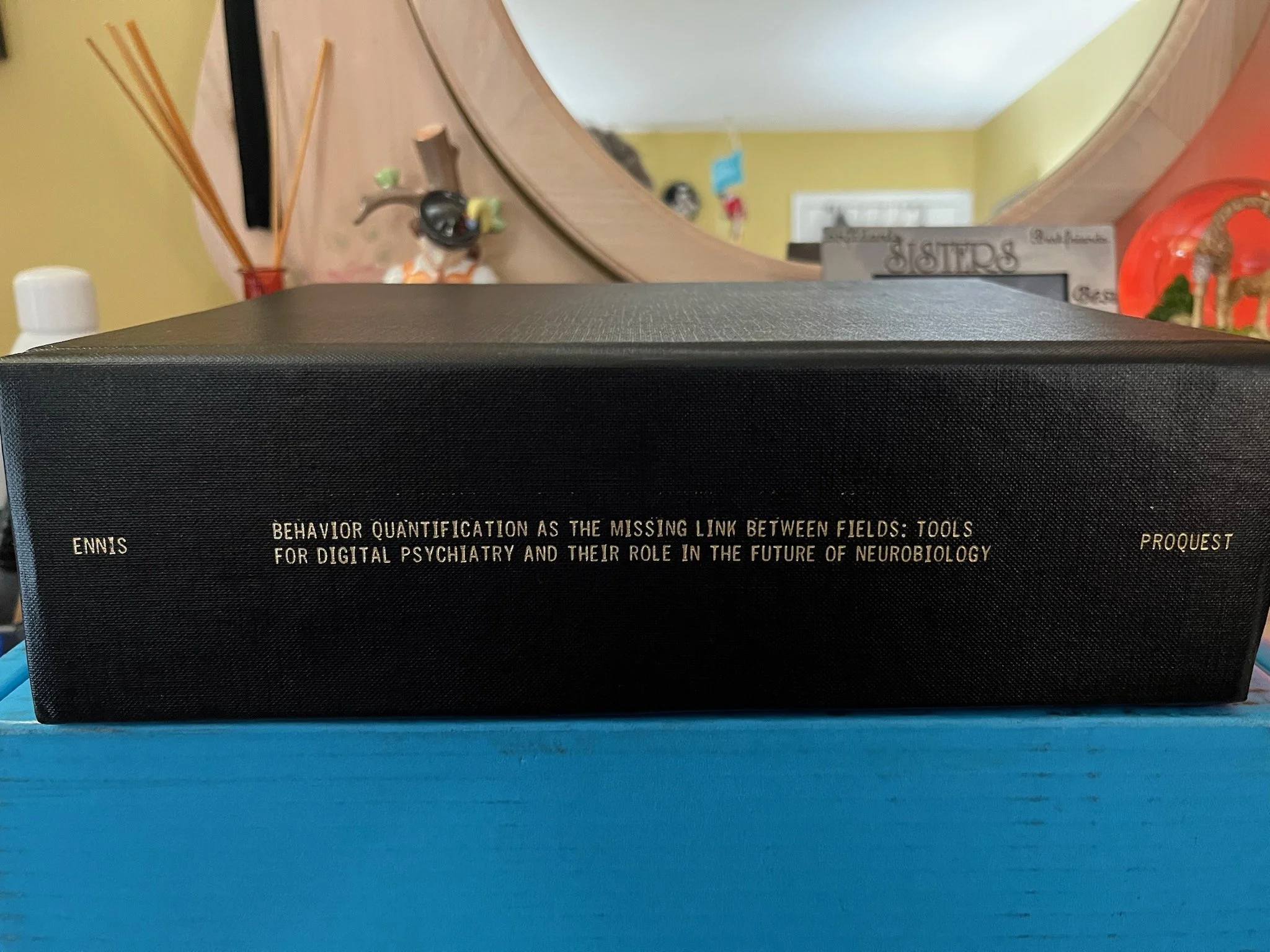On Writing a Thesis
This book is heavy enough it could maybe qualify as a weapon.
People don’t really sit down and read PhD theses, and this is only made more true when the thesis is over 1000 pages. So in some sense I put a lot of work into writing things up for my thesis that will never actually be used. Parts of the work itself can certainly be defended as useful, and they exist in abbreviated form as papers or code bases elsewhere. But the extended thesis document I wrote basically from scratch? Probably externally useless.
Despite these facts, I don’t at all regret writing my thesis the way I did. Instead I wish I started writing sooner! I feel the process of putting everything together across different levels of detail and for different audiences was deeply informative — the only reason I graduated with a cohesive future research vision for if I were to stay in academia, and more practically a sense of closure, was because of the thesis writing process. Shouldn’t this be the end goal of a PhD? Training for becoming a lead scientist?
The thesis is also a unique opportunity to do things slightly differently within the formal academic framework, and it’s a shame that most students end up just stapling together papers. Understandable of course, but sad because we desperately need more people to do things differently in neuroscience. Even if a PhD thesis is a small contribution, you never know who might eventually use a piece of the "different” thesis, and more importantly the writing process can change your own thinking process for the future.
In an effort to make pieces of my thesis more approachable for sharing, without twisting things (or expending excess effort) through formal publication, I’ll be selecting key parts to summarize via blog series over the coming two months. There will be a bit about RNNs, some general complaints about academia, and a number of comments on digital psychiatry. Stay tuned, as I’ll update here with links to posts on the following topics:
Challenges with psychiatry research, and the potential for tech to address some of them
What has digital psychiatry produced so far? — concerns with the field at present
Areas of promise for digital psychiatry in the future
Pros and cons of the patient speech sampling approach taken by the NIMH’s AMPSCZ initiative
A deeper dive into daily patient audio journals
Hands-on walkthrough of the work on stable multi-area recurrent neural networks in our “RNNs of RNNs” paper
Scientific and engineering applications for multi-area RNNs going forward
Why modern academic science is structurally unsound
Problems with the NIMH’s funding priorities
Footnote: ProQuest charges a flat rate for printing physical copies of a thesis, so a long one gets great value per page. Maybe you could put ProQuest out of business Silicon Valley style by bulk ordering my thesis.

